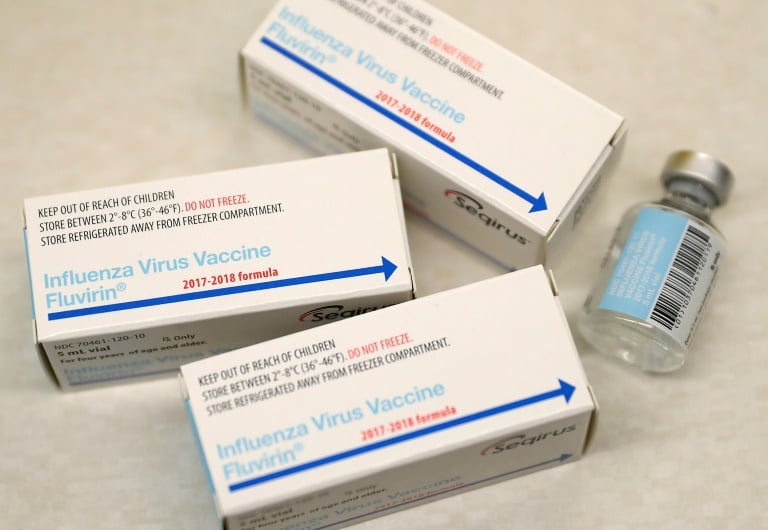Get your flu vaccine before the winter flu season hits.

Winter is on its way and with it, comes the inevitable and dreaded bouts of flu.
There are many misconceptions surrounding influenza (commonly referred to as “flu”) and the vaccine.
Here are a few that have been discredited:
Myth #1: Flu is not that serious.
Fact: Flu is actually a severe and possibly life-threatening disease which kills more than 500 000 people worldwide every year.
Myth #2: It is natural and almost expected to get the flu every year as it does its rounds.
Fact: Incorrect – flu can be avoided by having the flu vaccine.
Myth #3: The flu shot causes flu.
Fact: Impossible. The viruses contained in flu shots have been killed, which means they really can’t cause infection. Getting a flu shot stimulates the immune system which may cause mild flu-like symptoms.
Myth #4: The flu vaccine is only for the elderly and high-risk patients.
Fact: Flu affects people of ALL ages and anyone who would rather not contract flu should be vaccinated
Myth #5: I was vaccinated last year so I am good to go.
Fact: Every flu season there are different flu viruses circulating as viruses regularly change due to different factors including mutation. Therefore a new vaccine is manufactured each year in response to that year’s prevalent flu strains. To be up-to-date you need to be vaccinated every year.
When to get vaccinated
“The sooner the better and certainly before the winter flu season hits us,” says Jackie Maimin, CEO of the Independent Community Pharmacy Association (ICPA).
“We want to urge members of the public to go to their nearest local independent community pharmacy clinic and be vaccinated to protect their health and to curb the spread of influenza. The 2018 influenza vaccine has just been released, and should be readily available at pharmacies from this point in time. Most medical schemes now cover flu shots, so if you are on a medical scheme check with your pharmacy whether yours covers flu shots,” says Maimin.
“Many people die every year as a result of complications from flu, with most of the deaths occurring in people that are considered high risk.” Those considered high risk are pregnant women; children between the ages of six months and five years; people older than 65; those with HIV/AIDS; chronic disease sufferers; and those who work and live in densely populated areas and high traffic sites – teachers, students and cashiers in busy retail outlets are examples.
The ICPA advises that being vaccinated not only protects you from the flu but also protects others who come into contact with you and your community from the virus.
How do flu vaccines work?
Flu vaccines cause antibodies to develop in the body about two weeks after vaccination. These antibodies provide protection against infection from the viruses that are contained in the vaccine.
The vaccine increases a person’s defense against the influenza virus. It works by introducing very small amounts of viral components into the body. These components are enough to stimulate the production of antibodies (cells designed to attack that particular virus), which will remain in the body ready to attack that same virus in the future. The vaccine is used to prevent influenza and is developed for those who want to reduce their chances of contracting the flu.

Picture: iStock
“The seasonal flu vaccine protects against the influenza viruses that research indicates will be most common during the upcoming season,” explains Maimin.
“It is important to make sure you receive your flu vaccine as soon as it becomes available at your local pharmacy, as it takes about two weeks following vaccination for the antibodies to develop in the body and provide protection against the flu strains. Influenza seasons are unpredictable and can begin early, so don’t be caught unprotected.”
To get the most out of your vaccination, ensure you are feeling well when you have your shot – this will ensure you have the best immune response to the killed virus. Pharmacists will advise against getting the flu shot if you feel unwell or have a fever ,as your immune system will already be busy trying to fight that bug and won’t respond well to the killed virus.

Picture Thinkstock
Other ways to boost your chances of avoiding the flu this winter
South Africans can also take some basic hygiene steps to protect themselves and their families from coming down with the flu. Take the necessary precautions by washing your hands often, covering coughs and sneezes with a tissue and stay at home when you are ill so that you don’t spread germs.
In drought gripped areas the ICPA recommend that you carry wet wipes and/or waterless hand sanitiser with you to ensure that you keep your hands clean and virus-free thereby reducing the spread of germs.
“The flu stops with you – go and have your flu shot and stop the spread of this infection among family, friends and co-workers.”
//
For more news your way, follow The Citizen on Facebook and Twitter.







